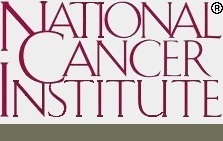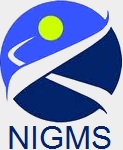 |
 |
|
 |
Proteomics Informatics Spring 2016 (BMSC-GA 4437)
Course Directors:
David Fenyö (David@FenyoLab.org), Professor
Kelly Ruggles (Kelly.Ruggles@nyumc.org), Assistant Professor
Beatrix Ueberheide (Beatrix.Ueberheide@nyumc.org), Assistant Professor
Instructors:
Himanshu Grover (Himanshu.Grover@nyumc.org)
Jessica Chapman (Jessica.Chapman@nyumc.org)
Course overview
This course will give an introduction of proteomics and mass spectrometry workflows, experimental design, and data analysis with a focus on algorithms for extracting information from experimental data. The following subjects will be covered in: (1) Protein identification (peptide mass fingerprinting, tandem mass spectrometry, database searching, spectrum library searching, de novo sequencing, significance testing); (2) Protein char¬acterization (protein coverage, top-down proteomics, post-translational modifications, protein processing and degradation, protein complexes); (3) Protein quantitation (metabolic labeling - SILAC, chemical labeling, label-free quantitation, spectrum counting, stoichiometry, biomarker discovery and verification). Examples will be provided throughout the course on how the different approaches can be applied to investigate biological systems. The class will be structured to include hands-on practical techniques for analyzing relevant proteomics datasets.
Learning objectives
At the conclusion of the course, the student will be able to:
Understand experimental design for mass spectrometry based proteomics;
Demonstrate detailed understanding of the possibilities and limitations of algorithms that are applied to proteomics data; and
Analyze a large proteomics data set using available algorithms.
Course Assessment
- Readings and participation (30%): Students are required to attend class, to complete reading assignments and to participate in discussions and engage in healthy exchange of ideas. Each student is required to lead at least one reading from the assigned weekly readings. This discussion lead will be graded.
- Assignments (30%): Programming assignment will be given at the end of each class, and the solutions to these assignments should be e-mailed to Assignments@FenyoLab.org within a week.
- Final project (40%)
Missed Exams and Grade Appeals
Make-up examinations (for final only) will be given under special circumstances. Documentation will be required to verify a student’s claim. If a make-up exam is permitted, a different exam will be written for that student and may have a different format than the regular examination.
The assignments must be turned in on time and no late assignments will be accepted.
If there is a time that you believe that there is a mistake in grading of an assignment/exam, you will have a chance to appeal your exam grade within a week after you receive your grade. If you think this is the case, you must write a note describing the error, attach it to the original exam, and give it to me within a week of the return of your exam. I will review your argument and my initial grading, and then return your exam with a decision to you in a timely manner.
General Policies
- Late/missed work: You must adhere to the due dates for all required submissions. If you miss a deadline, then you will not get credit for that assignment/post. Try to avoid last minute submissions.
- Incompletes: No “Incompletes” will be assigned for this course unless we are at the very end of the course and you have an emergency.
- Responding to Messages: I will check e-mails daily during the week, and I will respond to course related questions within 48 hours.
- Announcements: I will make announcements throughout the semester by e-mail. Make sure that your email address is updated; otherwise you may miss important emails from me.
- Safeguards: Always back up your work on a safe place (electronic file with a backup is recommended) and make a hard copy. Do not wait for the last minute to do your work. Allow time for deadlines.
- Plagiarism: Plagiarism, the presentation of someone else's words or ideas as your own, is a serious offense and will not be tolerated in this class. The first time you plagiarize someone else's work, you will receive a zero for that assignment. The second time you plagiarize, you will fail the course with a notation of academic dishonesty on your official record.
Lecture 1 Overview of proteomics (January 26, 2016 TRB 718 5pm)
Lecturer: Fenyo
(
Slides
)
Reading List
M.A. Gillette, S.A. Carr, "Quantitative analysis of peptides and proteins in biomedicine by targeted mass spectrometry", Nature Methods 10 (2013) 28–34.
A. Bensimon, A.J.R. Heck R. Aebersold, "Mass Spectrometry–Based Proteomics and Network Biology", Annual Review of Biochemistry 81 (2012) 379-405.
Lecture 2 Overview of mass spectrometry (February 2, 2016 TRB 718 5pm)
Lecturer: Fenyo
Reading List
Overview of Mass Spectrometry
Signal processing I: analysis of mass spectra
Additional Reading
Beavis, R.C. & Chait, B.T. "Matrix-assisted laser desorption ionization mass-spectrometry of proteins" Meth. Enzymol 270, 519-551 (1996).
Banks, J.F. & Whitehouse, C.M. "Electrospray ionization mass spectrometry" Meth. Enzymol 270, 486-519 (1996).
Chalkley, R. "Instrumentation for LC-MS/MS in proteomics" Methods Mol. Biol 658, 47-60 (2010).
Lecture 3 Protein identification I: searching protein sequence collections and significance testing (February 9, 2016 TRB 718 5pm)
Lecturer: Fenyo
Tutorial Instructor: Grover
Reading List
Protein identification I: searching protein sequence collections and significance testing
Eriksson, J., Chait, B.T. & Fenyö, D. "A statistical basis for testing the significance of mass spectrometric protein identification results" Anal. Chem 72, 999-1005 (2000).
Fenyö, D. & Beavis, R.C. "A method for assessing the statistical significance of mass spectrometry-based protein identifications using general scoring schemes" Anal. Chem 75, 768-774 (2003).
Elias, J.E. & Gygi, S.P. "Target-decoy search strategy for increased confidence in large-scale protein identifications by mass spectrometry" Nat. Methods 4, 207-214 (2007).
Lecture 4 Databases, data repositories and standardization (February 16, 2016 TRB 718 5pm)
Lecturer: Fenyo
Tutorial Instructor: Grover
Reading List
Databases, data repositories and standardization
Craig R, Cortens JP, Beavis RC, "Open source system for analyzing, validating, and storing protein identification data", J Proteome Res. 3 (2004) 1234-42.
D. Fenyö, J. Eriksson, R. Beavis, "Mass spectrometric protein identification using the global proteome machine", Methods Mol Biol 673 (2010) 189-202.
CF Taylor, NW Paton, KS Lilley, P-A Binz, RK Julian Jr, AR Jones, W Zhu, R Apweiler, R Aebersold, EW Deutsch, MJ Dunn, AJR Heck, A Leitner, M Macht, M Mann, L Martens, TA Neubert, SD Patterson, P Ping, SL Seymour, P Souda, A Tsugita, J Vandekerckhove, TM Vondriska, JP Whitelegge, MR Wilkins, I Xenarios, JR Yates III, H Hermjakob, "The minimum information about a proteomics experiment (MIAPE)", Nat Biotechnol. 25 (2007) 887-93.
Lecture 5 Interpretation of mass spectra (February 23, 2016 TRB 718 5pm)
Lecturer: Ueberheide
Lecture 6 Protein identification II: de novo sequencing (March 1, 2016 TRB 718 5pm)
Lecturer: Ueberheide
Reading List
Seidler J, Zinn N, Boehm ME, Lehmann WD, "De novo sequencing of peptides by MS/MS, Proteomics 10 (2010) 634-49.
Standing KG, "Peptide and protein de novo sequencing by mass spectrometry, Curr Opin Struct Biol. 13 (2003) 595-601.
Lecture 7 Presentations of Project 1: Trends in Proteomics (March 8, 2016 TRB 718 5pm)
Lecture 8 Protein quantitation I: data dependent acquisition (March 15, 2016 TRB 718 5pm)
Lecturer: Ruggles
Tutorial Instructor: Chapman
Reading List
Protein Quantitation Overview
Domon, B. & Aebersold, R. "Options and considerations when selecting a quantitative proteomics strategy", Nat. Biotechnol 28, 710-721 (2010).
Zhang, G. et al. "Protein quantitation using mass spectrometry" Methods Mol. Biol 673, 211-222 (2010).
Lecture 9 Protein quantitation II: targeted and data-independent acquisition (March 22, 2016 TRB 718 5pm)
Lecturer: Ruggles
Tutorial Instructor: Chapman
Reading List
Protein quantitation II: multiple meaction monitoring
D.R. Mani, S.E. Abbatiello, S.A. Carr, "Statistical characterization of multiple-reaction monitoring mass spectrometry (MRM-MS) assays for quantitative proteomics", BMC Bioinformatics 13 (2012) S9.
A. Maiolica, M.A. Jünger, I. Ezkurdi, R. Aebersold, "Targeted proteome investigation via selected reaction monitoring mass spectrometry", Journal of Proteomics 75 (2012) 3495-3513.
MacLean, B. et al. "Skyline: an open source document editor for creating and analyzing targeted proteomics experiments", Bioinformatics 26, 966-968 (2010).
Lecture 10 Proteogenomics (April 12, 2016 TRB 718 5pm)
Lecturer: Ruggles
Reading List
Proteogenomics
Ruggles KV, Tang Z, Wang X, Grover H, Askenazi M, Teubl J, Cao S, McLellan MD, Clauser KR, Tabb DL, Mertins P, Slebos R, Erdmann-Gilmore P, Li S, Gunawardena HP, Xie L, Liu T, Zhou JY, Sun S, Hoadley KA, Perou CM, Chen X, Davies SR, Maher CA, Kinsinger CR, Rodland KD, Zhang H, Zhang Z, Ding L, Townsend RR, Rodriguez H, Chan D, Smith RD, Liebler DC, Carr SA, Payne S, Ellis MJ, Fenyo D, "An analysis of the sensitivity of proteogenomic mapping of somatic mutations and novel splicing events in cancer", Mol Cell Proteomics. 2015
Lecture 11 Presentations of project 2: Identification (April 19, 2016 TRB 718 5pm)
Lecture 12 Protein characterization I: post-translational modifications (April 26, 2016 TRB 718 5pm)
Lecturer: Ueberheide
Reading List
Protein characterization I: PTMs
Trost, M., Bridon, G., Desjardins, M. & Thibault, P. "Subcellular phosphoproteomics", Mass Spectrom. Rev. 29, 962-990 (2010).
Lecture 13 Protein characterization II: protein interactions (May 3, 2016 TRB 718 5pm)
Lecturer: Ueberheide
Reading List
Protein characterization II: protein interactions
Z Hakhverdyan, M Domanski, LE Hough, AA Oroskar, AR Oroskar, S Keegan, DJ Dilworth, KR Molloy, V Sherman, JD Aitchison, D Fenyö, BT Chait, TH Jensen, MP Rout, J LaCava, "Rapid, optimized interactomic screening", Nature Methods 2015
A Leitner, R Reischl, T Walzthoeni, F Herzog, S Bohn, F Förster, and R Aebersold, "Expanding the Chemical Cross-Linking Toolbox by the Use of Multiple Proteases and Enrichment by Size Exclusion Chromatography", Mol Cell Proteomics 11 (2012)
Lecture 14 Data analysis, visualization, and molecular markers (May 10, 2016 TRB 718 5pm)
Lecturer: Ruggles
Reading List
Data analysis and visualization
Molecular signatures
Data Analysis with Open Source Tools by Philipp K. Janert
Data visualization: A view of every Points of View column
Lecture 15 Presentations of project 3: Quantitation (May 31, 2016 TRB 718 5pm)
|
 |
 |






